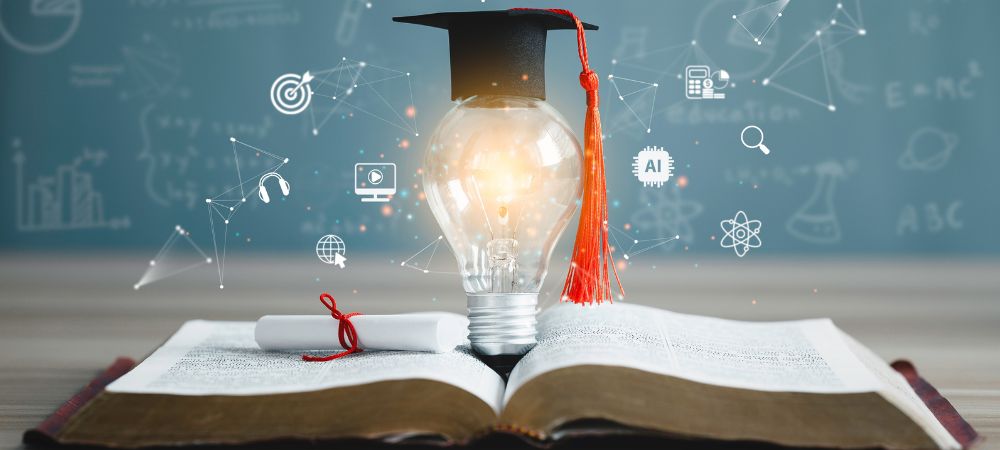AI in the Higher Education Landscape in India


Artificial Intelligence changes the way of teaching from one corner of the world to the other. India is no exception. The means of teaching in the country is going to reinvent practically everything within the large and varied education ecosystem in the nation, establishing future-ready institutions within this vast space. Besides being one of the fastest-growing economies and emerging centres for technology, the higher education space is furtively turning with the use of AI in transforming learning by personalizing it to a more flexible and adaptive one.
For example, the most promising implementation of AI in the Indian higher education will be personalized learning. Many of these platforms now use their machine learning algorithms to learn about the behavior of a student and accordingly tailor content in regard to the individual’s requirements. This is not limited to K-12 learning but is being extended to universities by providing adaptive learning systems for the university students. This will ensure that students receive the amount of time and support needed to understand more complicated ideas at their own pace.
Individualization of learning pathways for students is being made possible by AI initiatives in universities. For example, AI-learning platforms function in a way whereby an applicant’s strengths and weaknesses, as well as possible career aspirations, are evaluated and later a report is generated which contains recommended courses, projects, and internships. This type of individualization will enhance degree performance as well as prepare the student to take on a role specified within the industry.
Simplification of Administrative Processes
AI is improving administrative efficiency at an unprecedented rate in Indian universities. The AI-powered systems now have admissions for students, timetable scheduling, resource management, etc., processed through their administrative works. Predictive analytics tools are also assisting universities in monitoring the performances of students and identifying who is at risk of dropping out. AI-based early intervention programs are ensuring better student retention and success rates.
Enhancing Research Capabilities
Research is an integral part of higher education, and AI contributes to improving the research atmosphere in India. Machine learning algorithms are being used to analyze large data sets in both healthcare and climate studies as well. AI tools such as TensorFlow and PyTorch empower researchers to solve problems more efficiently by proposing innovative solutions.
Language and Regional Barriers
The linguistic diversity of India poses problems in delivering uniform educational content. AI-powered language processing tools are addressing that gap by providing real-time translation and transcription services. AI applications, for instance, can now allow students to view their study materials in native languages and thus increase the comprehensiveness of learning.
Speech-to-text tools and AI-based transcription services are also making classrooms accessible to disabled students. AI is, therefore, breaking linguistic and accessibility barriers to ensure education reaches every corner of the country.
AI in Skill Development and Placements
With the increasing demand for AI and data science professionals, Indian universities are including AI in their curricula to equip students with industry-relevant skills. Programs like machine learning, natural language processing, and robotics are now mainstream in institutions like IITs, IIITs, and prominent private sector universities such as The NorthCap University.
Campus recruitment processes are also changing with AI-driven placement tools. It helps to match students’ skills and preferences with the available job opportunities and thus gives personalized career recommendations. Also, AI simulations and virtual interviews are preparing students for recruitment processes, which helps them stand out in this competitive job market.
Increased Access to Education
AI is democratizing higher education in India by expanding access to quality learning resources. Online NPTEL (National Programme on Technology Enhanced Learning) now uses AI for courses of various domains catering to remote areas. Proctoring with AI ensures integrity in online examination, making virtual education strong and credible.
Initiatives such as the AI for India program also promote digital literacy and adoption of AI in rural areas. By bridging the urban-rural divide, such efforts help create a more balanced education system.
Challenges and Ethical Considerations
Despite its transformative potential, integrating AI in higher education comes with challenges. Data privacy is a significant concern, as institutions collect and analyze vast amounts of student information. Ensuring transparency and ethical use of AI systems is crucial to maintaining trust.
Additionally, the digital divide becomes a barrier to adoption of AI. While urban-based institutions can deploy more sophisticated tools for AI, less privileged rural and under-resourced universities will struggle to match up. So, there is a need for government initiatives and public-private partnerships in order to eradicate disparities in AI for benefitting all students.
The Way Ahead
As the higher education landscape unfolds in India, AI remains a critical component of developing its future. The vision of the government, evident in initiatives such as the NEP 2020, holds great importance in the seamless integration of technology into education by investing in AI research and infrastructure and teacher training.
Indian universities are also becoming hubs for innovation through AI education with collaborations from leading industries like NVIDIA, IBM, and TCS, cutting-edge innovations in AI. Fostering a culture of experimentation and innovation will ensure Indian universities take the lead on this AI-driven education revolution globally.
Conclusion
AI is not just a tool but a transformative force in Indian higher education. From personalized learning and administrative efficiency to groundbreaking research and inclusivity, AI is addressing long-standing challenges and opening new avenues for growth. As institutions embrace AI, they are not only preparing students for the future but also redefining the very fabric of education in India. The journey is just beginning, and the possibilities are limitless.
Author
Dr. Srishti
Associate Professor, CSE
The NorthCap University














